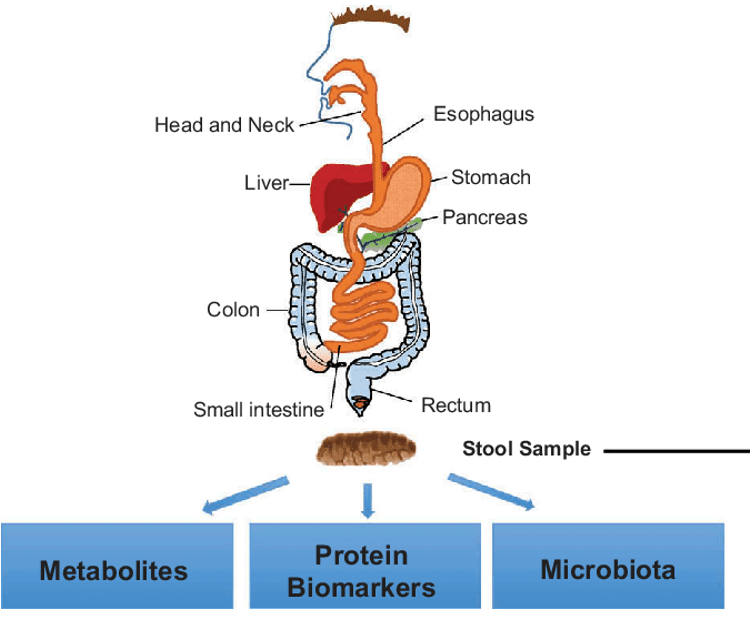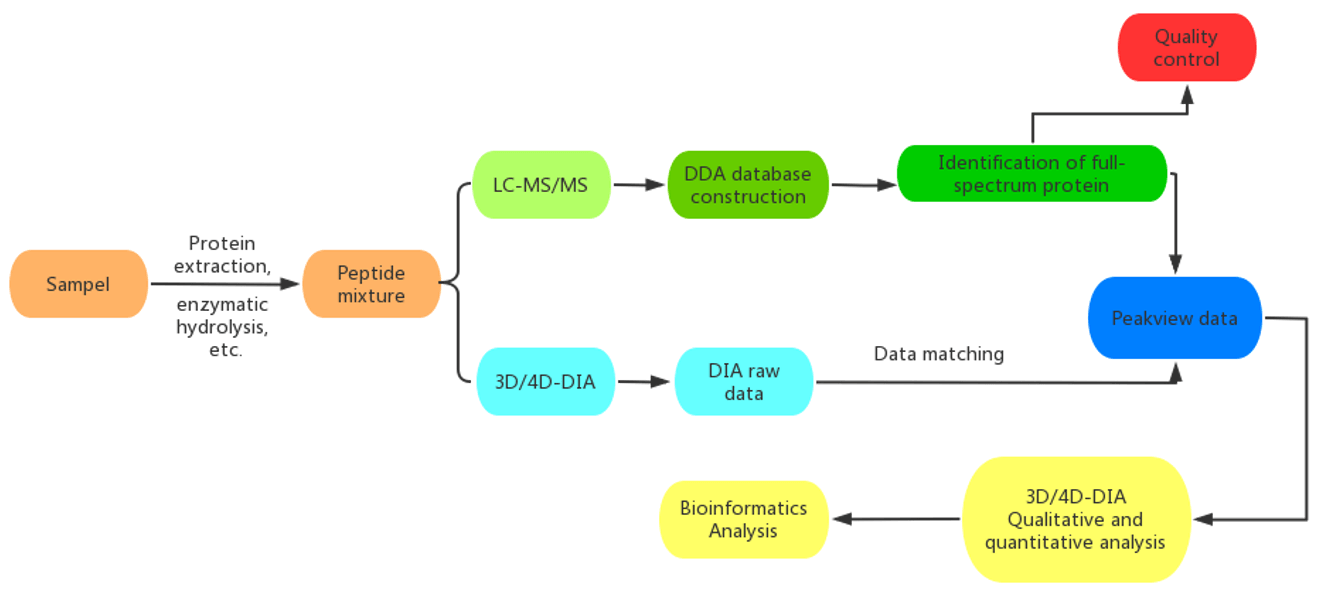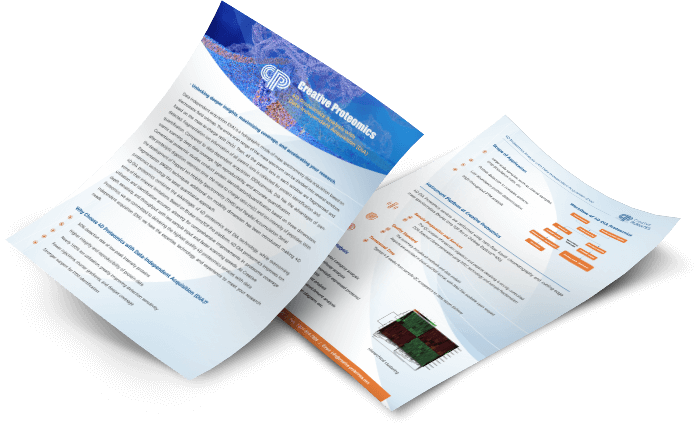Fecal Proteomics Solutions
In recent years, fecal proteomics has received more and more attention. It can provide insights for the diagnosis and monitoring of many intestinal diseases by identifying potential biomarkers in stool samples and helping to identify disease-related pathways. Typically, fecal proteomics has both a discovery and translational/validation component in which libraries of potential biomarker candidates are established on a small number of samples by comparing normal and diseased states, followed by quantitative validation of potential biomarkers and biomarker panels on a larger number of clinical samples. Fecal proteomics has shown its potential in discovering and validating biomarkers for colorectal cancer screening, and MALDI-MS analysis of fecal microbiota to diagnose a series of intestinal diseases is gaining clinical approval.
 Stool samples contain information relating to the gastrointestinal (GI) tract that it has passed over and organs feeding into it. The fecal components can be analyzed by proteomics to reveal potential biomarkers, disease-related signaling pathways and the microbiome. Ping Jin et, al. Expert Review of Proteomics. 2017
Stool samples contain information relating to the gastrointestinal (GI) tract that it has passed over and organs feeding into it. The fecal components can be analyzed by proteomics to reveal potential biomarkers, disease-related signaling pathways and the microbiome. Ping Jin et, al. Expert Review of Proteomics. 2017
Data-Independent Acquisition Mass Spectrometry in Metaproteomics of Gut Microbiota
Metagenomic approaches, a commonly used gut microbial analysis tool, focus on taxonomy or gene annotation, but lack the ability to define the function of the gut microbiota. Therefore, metaproteomics approaches have been introduced to overcome this limitation. However, commonly used metaproteomics methods use data-dependent acquisition mass spectrometry, which has limited reproducibility when analyzing complex microbial fraction samples. To overcome the limitations, data-independent acquisition (DIA) mass spectrometry produces records of all precursor and fragment ion spectra by systematically fragmenting all precursor peptide ions. Therefore, DIA has been proposed as an alternative method to overcome many fallbacks of DDA to study gut microbes.
Our Fecal Proteomics Service
After a long period of dedicated research and development, Creative Proteomics has launched unique Discovery Proteomics and 4D-DIA services (DIA MS-based) to analyze fecal proteome, enabling accurate and consistent quantification of DIA metaproteomics data to aid in the study of gut microbes. Our services can quantify up to 9000 proteins in a single sample with high repeatability and accuracy, and is suitable especially for large cohorts of clinical samples. We also offer highly multiplexed targeted proteomics with absolute quantification for customized panels of proteins.
Workflow of Our Fecal Proteomics Services

Advantages
- High accuracy
- High throughput, up to 9000 proteins can be identified at once
- Quantitatively identify nearly all detectable molecules, covering low-abundance proteins/peptides
- High repetition rate
- Complete and comprehensive sample information storage in the first analysis
Sample Requirements
| Sample Type | Fecal sample | # of Cell | Microbes |
| Quantify | 100 ug | 1×107 cells | Dry weighed: 200 mg |
Report
- Experimental steps
- Relevant experiment parameters
- Mass spectrometry spectra
- Raw data
- Proteomics analysis results
Fecal proteomics can be applied on large scale, analyzing thousands of proteins across thousands of samples in a high-throughput mode. We also offer highly multiplexed targeted proteomics with absolute quantification for customized panels of proteins.
References:
- Ping Jin et, al. Mining the fecal proteome: from biomarkers to personalised medicine. Expert Review of Proteomics. 2017.
- Juhani Aakko et, al. Data-Independent Acquisition Mass Spectrometry in Metaproteomics of Gut Microbiota—Implementation and Computational Analysis. J. Proteome Res. 2020.
- Sami Pietilä1 et, al. Metaproteomics boosted up by untargeted dataindependent acquisition data analysis framework. bioRxiv- Bioinformatics. 2020.
* For Research Use Only. Not for use in the treatment or diagnosis of disease.

 Stool samples contain information relating to the gastrointestinal (GI) tract that it has passed over and organs feeding into it. The fecal components can be analyzed by proteomics to reveal potential biomarkers, disease-related signaling pathways and the microbiome. Ping Jin et, al. Expert Review of Proteomics. 2017
Stool samples contain information relating to the gastrointestinal (GI) tract that it has passed over and organs feeding into it. The fecal components can be analyzed by proteomics to reveal potential biomarkers, disease-related signaling pathways and the microbiome. Ping Jin et, al. Expert Review of Proteomics. 2017

 4D Proteomics with Data-Independent Acquisition (DIA)
4D Proteomics with Data-Independent Acquisition (DIA)